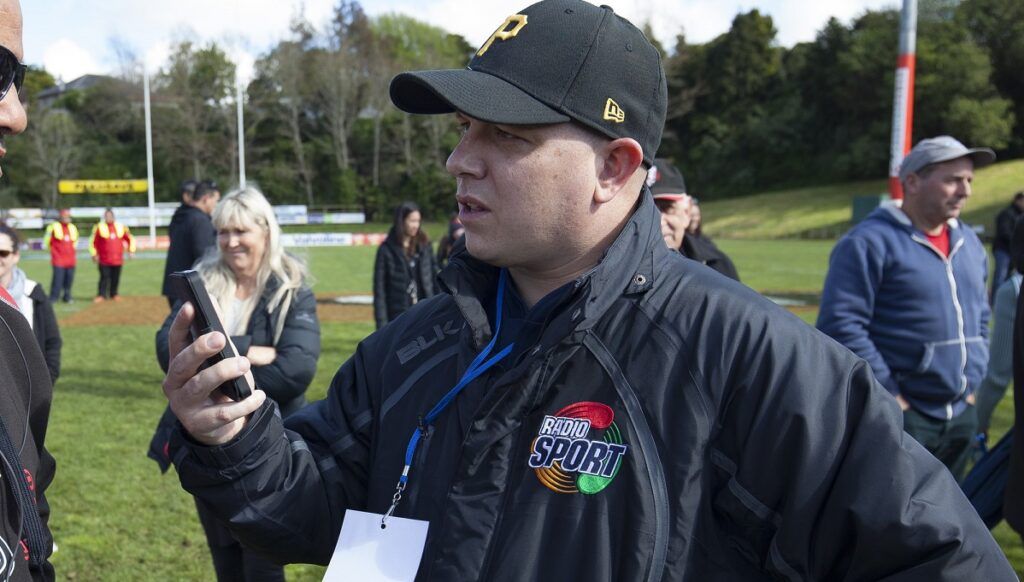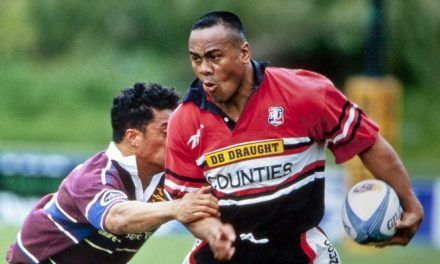


By Dale Budge
I often get asked what it is about sport that appeals to me and I generally struggle to come up with a rational explanation for my obsession.
I’m going to have a stab at it here, so excuse the amateur psychology!
Ever since I can remember – and that dates back to probably about three or four years of age – sport, and team sports in particular, have drawn my interest.
My parents weren’t overly sporty – they followed our national teams, and they dabbled in a little sport largely on a social level. They became more into it once my brother and I came along, and it became such a big part of how we existed.
Sport has been the defining thing in my life – firstly as a kid that just wanted to play whatever code I could, then as a fan of professional sport that I’d watch on television, to someone that had a huge desire to make a career out of playing sport and then someone that chose the next best path when I ultimately realised I was short of talent. That was writing and talking about it as a journalist and broadcaster. In more recent times I’ve got into working fulltime as a sports administrator, which is an enjoyable challenge.
No matter which version of me I look back at, all of them were linked by the buzz of competing and testing myself against someone. Sport invokes emotion – the agony of losing, and the ecstasy of winning. But more than that, it makes you fearful at times, it makes you brave, it can make you question your inner self and can give you the greatest sense of satisfaction.
I think the bit of me that has always been attracted to team sports is that feeling of going through all of those emotions as a collective with your teammates. They feel what you feel, and they know what you’ve gone through. Some of my fondest memories looking back at my rather ordinary sporting career are images of sitting in a changing room, looking around and seeing teammates that have and are experiencing exactly what I am at the same time.
I’m not overly spiritual and I have no clue what will happen when my heart beats for the final time, but I’ve basically always operated with the thinking of giving it all while I can. I’ve read and listened to the words of the great generation that returned from war and how they approached life full noise – I guess they saw and understood how temporary life is and decided that we may as well do it all, as much as we can, while we can. They worked hard, they played hard. They loved with all their heart, and they fought as though there was nothing else that mattered – I guess the alternative was rather less appealing.
I see sport the same way – if we’re playing, watching, working in it, we may as well win as strongly as we possibly can; we may as well lose big if we’re going to lose. We may as well feel the highs and lows at the extreme end if that’s our motivation for doing it in the first place.
Blue Oyster Cult’s 1970s classic Don’t Fear the Reaper resonates with me – it wasn’t a suicide song as many thought, but rather an understanding that our own deaths are inevitable and that there is no point worrying or stressing about it. To really live, you have to cast aside any fear of dying and focus on the opportunity in front of you.
When it comes to sport, you can’t afford to fear losing if you want to truly experience the euphoria of winning – to really do winning justice, you cannot think about the consequences of losing. That isn’t an easy thing to do, particularly for Kiwis, who are generally modest and reserved people.
I do sport emotionally – as a player, a fan, an observer or a critic – let me have it as much as I can – whatever emotion that might be. Why else give up the time to it if you don’t want to feel something as much as possible?
Even after writing this, I’m not entirely sure I’ve complete conveyed what it means to me, but I think that is the best that I can do to explain my obsession for sport.












Recent Comments